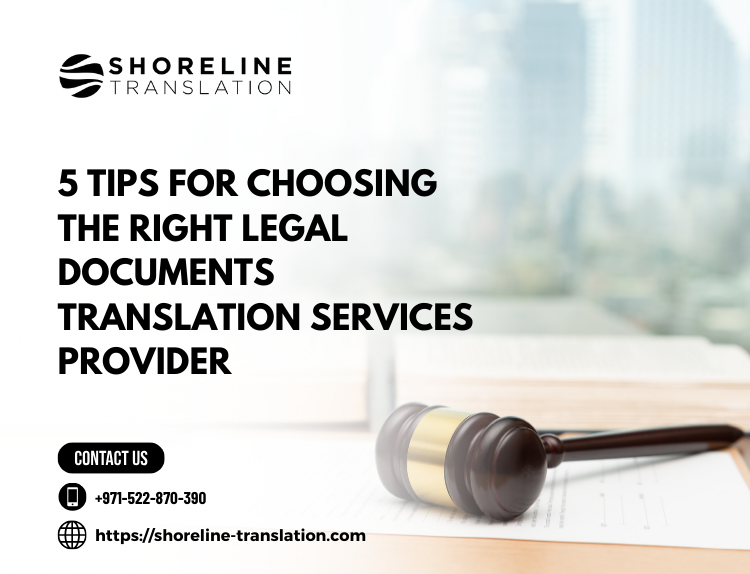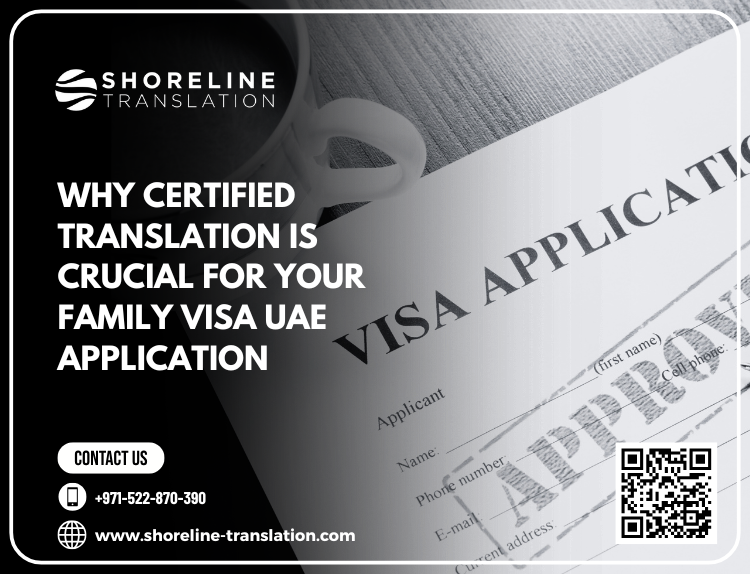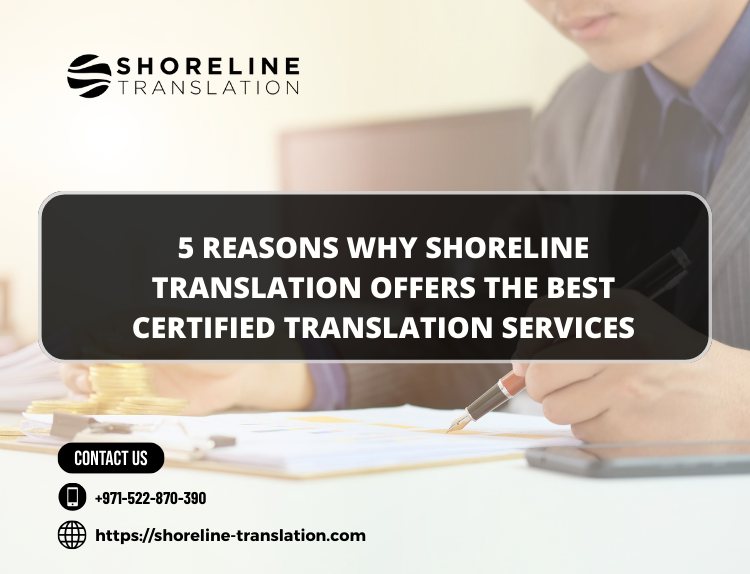Table of Contents
Toggle5 Tips for Choosing the Right Legal Documents Translation Services Provider
When it comes to translating legal documents, accuracy and precision are of utmost importance. Whether you need contracts, patents, or court transcripts translated, finding the right legal documents translation services provider is crucial. With so many options out there, how do you choose the one that best meets your needs? In this blog post, we will provide you with 5 tips to help you navigate through the sea of translation service providers and find the perfect match for your legal document translation needs. So let’s dive in and ensure that nothing gets lost in translation!

Understanding the scope of legal document translation
When it comes to legal document translation, it’s important to understand the scope of this specialized service. Legal documents can encompass a wide range of materials, including contracts, agreements, court rulings, and patents. These documents often contain complex legal terminology and require a deep understanding of both the source and target languages.
Legal document translation goes beyond simply converting words from one language to another. It involves maintaining accuracy in conveying the original meaning and intent while ensuring that all legal nuances are preserved. A small error or misinterpretation could have significant consequences for legal proceedings or contractual obligations.
Translating legal documents requires not only linguistic proficiency but also knowledge of the specific field of law involved. Whether it’s corporate law, intellectual property law, or immigration law, translators must possess expertise in these areas to accurately translate technical terms and concepts.
Furthermore, confidentiality is paramount when dealing with sensitive legal information. Translators should adhere to strict privacy protocols and ensure that all client information remains secure throughout the translation process.
To navigate this intricate landscape of legal document translation successfully, you need a professional provider who understands the complexity of translating such materials accurately while upholding confidentiality standards. Now that we’ve established an understanding of what is involved in legal document translation let’s move on to our first tip: assessing expertise in this specialized field.
Assess Expertise in Legal Document Translation
When it comes to choosing the right legal documents translation services provider, assessing their expertise in legal document translation is a crucial first step. Legal translations require specialized knowledge and accuracy to ensure that the meaning of the original document is preserved correctly. Here are some key factors to consider when evaluating a provider’s expertise:
1. Language Proficiency: Look for a translation service that has native speakers or highly proficient translators in both the source and target languages of your legal documents. This ensures that they have a deep understanding of the linguistic nuances and cultural context necessary for accurate translations.
2. Legal Knowledge: A reputable provider should have translators with expertise in legal terminology, concepts, and processes specific to your jurisdiction. They should be familiar with different types of legal documents, such as contracts, agreements, patents, or court transcripts.
3. Industry Experience: Consider how long the translation service has been operating and whether they have worked extensively with clients from similar industries or fields as yours. Experience within your industry can provide valuable insights into any specific requirements or regulations related to your legal documents.
4. Certification and Training: Check if the translators working for the service provider hold certifications in translation or have undergone relevant training programs. These credentials indicate their commitment to professionalism and continuous improvement.
By thoroughly assessing a potential provider’s expertise in legal document translation based on these factors, you can make an informed decision about who is best equipped to handle your important translations accurately and efficiently. Additionally, you may also ask for samples of their previous legal translations and references from satisfied clients to get a better understanding of their capabilities and success rate.
Consider Quality and Accuracy Standards
When it comes to legal document translation, quality and accuracy are of utmost importance. A single mistranslation or error can have serious consequences and impact the outcome of legal proceedings. Therefore, when choosing a legal documents translation services provider, it is crucial to consider their commitment to maintaining high standards of quality and accuracy.
Inquire about the qualifications and experience of the translators working for the company. They should have expertise in both law and language to ensure accurate translations that capture the intended meaning without any errors or misinterpretations.
Ask about their quality assurance processes. Reputable providers will have a rigorous review system in place where multiple linguists review each translated document for accuracy, consistency, grammar, and formatting.
Consider whether they use specialized software or tools to support their translations. Technology can help improve efficiency and reduce human error during the translation process.
Check if they offer certification services for translated documents. Some legal entities require certified translations for official purposes such as court submissions or immigration applications. Having this option available ensures that your translated documents meet all requirements.
By considering these factors related to quality and accuracy standards when choosing a legal documents translation services provider, you can ensure that you receive reliable translations that accurately convey your message while complying with all applicable regulations and legal requirements.
Evaluate the Range of Legal Document Translation Services Offered
When choosing a legal documents translation services provider, it is crucial to evaluate the range of services they offer. Legal document translation can encompass various types of documents such as contracts, patents, court proceedings, and more. Therefore, you want to ensure that the provider you choose has expertise in translating a wide range of legal materials.
Consider whether the provider offers certified translations. Many legal documents require certification to be legally recognized. A reputable translation service should have experience providing certified translations for important legal documents.
Assess if the provider covers multiple languages. If your law firm or business deals with clients or partners from different countries or regions, it is essential that your chosen translation service can accommodate those language requirements.
Additionally, check if the provider offers specialized translations for specific areas of law. Different areas of law have their own unique terminology and language nuances. It is beneficial to work with a translator who understands these intricacies and can accurately translate legal content within your practice area.
Lastly, ensure that the translation service provides additional support services such as proofreading and editing. These extra steps help guarantee accuracy and consistency in translated documents.
By evaluating the range of services offered by a legal document translation services provider you can determine whether they are equipped to handle your specific needs effectively and efficiently.
Read Testimonials and Client Feedback
When choosing a legal documents translation services provider, it’s important to gather as much information as possible about their track record and client satisfaction. One effective way to do this is by reading testimonials and client feedback. These firsthand accounts can give you valuable insights into the quality of service provided by the company.
Start by visiting the service provider’s website or other reputable platforms where clients are invited to leave reviews. Take note of any positive comments regarding accuracy, timeliness, and customer support. Look out for any specific examples shared by clients that highlight the expertise and professionalism of the translation team.
Additionally, consider reaching out directly to past clients if possible. This will allow you to ask specific questions about their experience with the service provider and gain a deeper understanding of their level of satisfaction.
Pay attention not only to positive reviews but also negative ones. Look for patterns in complaints or recurring issues mentioned by multiple clients. This will help you identify any potential red flags or areas where the service provider may fall short.
Remember that testimonials and client feedback provide valuable social proof that can guide your decision-making process when choosing a legal documents translation services provider. By taking the time to read these reviews carefully, you’ll have a better idea of what to expect from your chosen company
Review Pricing and Cost Transparency
When choosing a legal document translation services provider, it is essential to review the pricing and ensure cost transparency. This tip will help you avoid any unexpected charges or hidden fees that may arise during the translation process.
Carefully review the pricing structure offered by different providers. Some translation companies charge per word, while others have flat rates for specific services. By understanding their pricing model, you can determine if it aligns with your budget and ensures fair compensation for the quality of work delivered.
Inquire about additional costs that may be incurred during the process. For example, some providers may charge extra for rush orders or specialized formatting requirements. It is crucial to clarify these details upfront to prevent any surprises later on.
Consider how transparent the provider is regarding their pricing policies. Look for clear communication about what is included in their quoted price and any potential add-ons or optional services that might incur additional fees.
Don’t hesitate to ask for a detailed cost breakdown before committing to a legal document translation service provider. This breakdown should specify each aspect of the project’s cost so that you can evaluate its value against competitors’ offerings and make an informed decision based on both quality and affordability factors.
By thoroughly reviewing pricing structures and ensuring cost transparency from potential providers, you can confidently choose an option that fits your budget without compromising on quality or accuracy in legal document translations.
Shoreline Offers Legal Documents Translation Services
Shoreline is a leading provider of legal document translation services, offering comprehensive solutions for businesses and individuals. With years of experience in the industry, Shoreline understands the unique challenges and requirements involved in translating legal documents accurately and effectively.
Their team of skilled translators are experts in various areas of law, ensuring that your legal documents are translated with precision and attention to detail. Whether you need contracts, court documents, patents, or any other legal documents translated, Shoreline has the expertise to handle it all.
Quality is paramount when it comes to legal document translation. Shoreline prides itself on delivering high-quality translations that meet rigorous standards for accuracy. They have stringent quality control processes in place to ensure that each translation undergoes extensive proofreading and editing before being delivered to clients.
In addition to their expertise and commitment to quality, Shoreline also offers a wide range of legal document translation services. From certified translations for official purposes to expedited turnaround times for urgent projects, they can tailor their services to meet your specific needs.
Don’t just take our word for it – read testimonials from satisfied clients who have used Shoreline’s legal document translation services. These testimonials provide valuable insights into the level of service you can expect from them.
When choosing a provider for your legal document translation needs, consider factors such as expertise, quality standards, range of services offered as well as client feedback/testimonials about their work.
SHORELINE stands out among others by providing these qualities along with transparency regarding pricing/costs associated with their services.
FAQs
1. How long does it take to translate a legal document?
The time required for translating a legal document depends on various factors such as its length, complexity, and the language pair involved. Generally, smaller documents can be translated within a few days, while larger or more complex documents may require more time. It is recommended to consult with the translation service provider to get an accurate estimate of the turnaround time.
2. What languages do legal document translation services cover?
Professional legal document translation services usually offer translations in multiple languages to cater to diverse client needs. Some common language pairs include English-Spanish, English-French, English-German, and many others. Reputable providers often have a network of experienced translators who specialize in different languages and legal fields.
3. Are my documents kept confidential during the translation process?
Yes, confidentiality is crucial when it comes to translating legal documents. Reliable translation service providers prioritize data security and have strict measures in place to protect your sensitive information. They should also be willing to sign non-disclosure agreements (NDAs) if required.
4. Can I request certified translations for official purposes?
Absolutely! Many professional translation companies offer certified translations that are accepted by government agencies, courts, universities, and other institutions requiring documentation for official purposes. Certified translations are accompanied by a signed statement attesting that the translated text is accurate and complete.
Conclusion
Choosing the right legal documents translation services provider is crucial for ensuring accurate and reliable translations. By following these 5 tips, you can make an informed decision that will meet your specific translation needs.
It’s important to assess the expertise of the translation company. Look for professionals with experience in translating legal documents, as they will have a deep understanding of the industry terminology and requirements.
Consider quality and accuracy standards. Choose a provider that has rigorous quality control measures in place to ensure error-free translations. Accuracy is paramount when dealing with legal documents, so choose a company that emphasizes this aspect.
Evaluate the range of services offered by the translation provider. Different legal document types may require different approaches or specializations, so make sure they can handle all your potential needs.
Next, take the time to read testimonials and client feedback about the translation company. This can give you valuable insights into their reputation and customer satisfaction levels.
Review pricing and cost transparency before making your final decision. While cost should not be the sole determining factor when choosing a service provider as quality is key; it’s still important to understand what you’re paying for and ensure there are no hidden fees or surprises down the line.
In conclusion, finding a reputable legal documents translation services provider requires careful consideration of various factors such as expertise in legal document translation, quality standards, range of services offered, client feedback/testimonials/reviews, and pricing/cost transparency. By taking these tips into account during your selection process, you’ll be able to find a trusted partner who can provide accurate translations while meeting your unique requirements.





